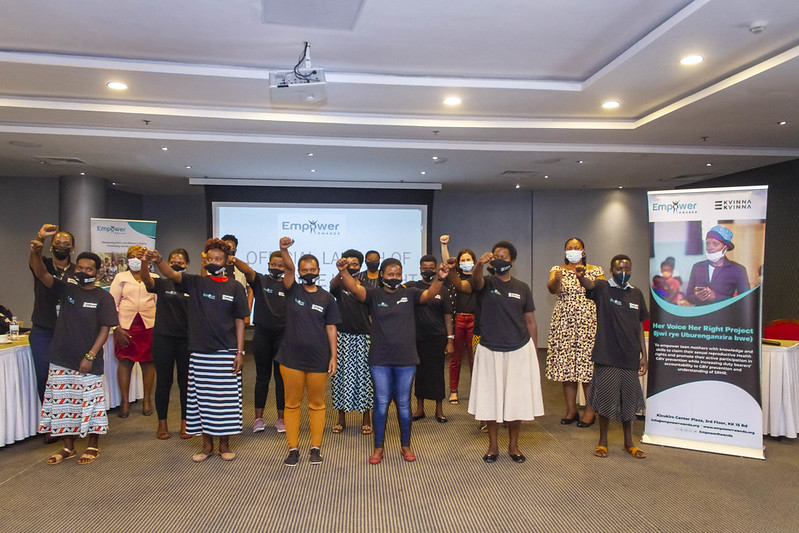Her Voice Her Right project: teenage pregnancy issue
Rwanda has made progress with tangible investments in addressing gender discrimination, through setting up key structures, adopting progressive policies, and establishing legal frameworks for gender equality promotion. However, widespread teenage pregnancies remain an alarming challenge that negatively impacts girls’ and women’s quality of life.
According to official statistics, 98,347 teenagers gave birth in the last four years in Rwanda, with many dropping out of school to become mothers. In 2016, the number of teenage births recorded was 17,849. In 2017, it reduced to 17,337 teenage births, however, these numbers of teenage pregnancies have been on the rise since 2018, despite the government’s efforts to empower and support the girl child.
The 2020 Rwanda Investigation Bureau report, indicates that child defilement cases increased by 27% of all cases received compared to 2018 -2019 and 2019-2020 from 3,137 to 4,157 in the respective years. In total, all GBV cases were 9,063 in the year 2018-2019 and rose to 10,842 in the year 2019-2020. From 2018, Nyagatare district has had the highest teenage pregnancy cases in the country since 2015 with a whopping 1,465 teen pregnancies followed by Gatsibo district
With the prevailing COVID-19 pandemic and the resultant measures to contain it, chances are high that numbers are increasing even faster than before. In April 2020, just months into the pandemic, the UN declared gender-based violence and human rights violations “shadow pandemics”, referring to the global increase in these issues amid the COVID-19 pandemic.
In order to evidently establish the baseline data and consequently understand the root causes and effects of teenage pregnancies in Nyagatare and Gatsibo districts, a survey was commissioned, under the auspices of the “Her Voice Her Right” project, which is being implemented by Empower Rwanda with the support from Kvinna Till Kvinna.
The baseline survey covered Nyagatare and Gatsibo districts and it adopted quantitative and qualitative methods. Respondents of the study included teen mothers, parents/guardians of teen mothers, sex offenders, and perpetrators, local and central government officials.
The survey highlighted some of the main causes of teenage pregnancies, which include; rape, peer group influence, absence of sexual and reproductive health education, conditional sex (material, favoritism, job), poverty (looking for support such as food, clothes), love and mutual intercourse, alcohol, and drug abuse, and forced marriage among many other factors. Some of the effects found include; school dropout, frustrations & depression, unhealthy family relationships, health complications (obstetric, fistula, malnutrition, etc.), job loss, and abject poverty
Additionally, teenage pregnancy does not only affect the mothers but also their children, families, and communities. Premature mothers may be robbed of the opportunity to be the empowered women of the future and their children may face numerous risks, such as low birth weight, health problems associated with poor perinatal outcomes, greater risk of socio-emotional problems, and a greater probability of giving birth at an early age as well.
Through “Her Voice Her Right Project,” Empower Rwanda is committed to working with local leaders, parents, teachers, and other partners to address some of the identified causes and effects of teenage pregnancies, as reiterated by the Country Director, Olivia Promise Kabatesi. “We ought to combine efforts in the continued journey towards fighting against GBV and child abuse threats. We need to protect our girls and our future generations.”
These teenage pregnancy cases are not only numbers; they have faces, voices, and stories attached to them, a history that shapes the nation and dreams imbued to contribute to the growth of their communities and their futures. It is high time that teenage pregnancy is seen as an urgent issue with strategies and plans that work.



